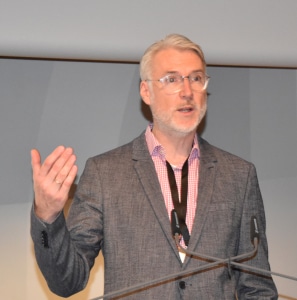Interview with NOW chief executive Kurt-Christoph von Knobelsdorff
As of May 15, 2020, the National Organization for Hydrogen and Fuel Cell Technology (NOW) has a new chief executive. Formerly Klaus Bonhoff, who has moved to the German transportation ministry, his successor is Kurt-Christoph von Knobelsdorff. Now is the time to take stock and ask what the future holds.
H2-international: Mr. von Knobelsdorff, you have been speaker for and CEO of NOW for around six months. How are things going?
Knobelsdorff: Fantastic! For one, I’m surrounded by a highly motivated team of experts and for another, alternative engines and fuels have gained enormous political momentum. This increases NOW’s task spectrum as evidenced by our recent boom in employees. And this is just the beginning, which creates a number of inhouse organizational challenges we nonetheless face with confidence and determination.
Your former years with Jörg Steinbach at the Brandenburg economy ministry also involved activities concerning hydrogen. What particularly attracts you to this area?
Linking hydrogen to the generational task of structural change in the wake of Lausitz’s withdrawal from brown coal electricity generation. Which ties in perfectly with my work at NOW. For example, Lausitz was chosen as a HyStarter region, and HyStarter is part of our HyLand funding effort that supports establishing a regional hydrogen value chain – from production to gas use in transportation. Or, where NOW is also involved, reviving the traditional Heidekraut train route á la climate friendly.
Looking at last year’s sequence of events, the beginning of 2020 proved that interest in hydrogen was enduringly on the rise. Was that one of the reasons you wanted to take on this position?
My interest in hydrogen dates back further. I had already probed deeply into the topic when I was working for Schleswig-Holstein’s economy ministry. I am convinced hydrogen is the key to decarbonizing our energy system across all industries. So, making the effort to accompany this transformation from a central position was only logical.
When you came to NOW, the hydrogen industry was waiting with bated breath for the national hydrogen strategy. Did you take part in shaping it or had the blessing already been given?
It was a long road to enacting the NHS. NOW was intensively involved in preparations and currently plays an important role shaping its implementation. That makes sense, since with the national hydrogen and fuel cell program NIP, we have basically anticipated much of the strategy. Many NHS measures follow approaches NIP had already developed or can be integrated into current projects. Germany’s strong position in the global hydrogen technology competition can justifiably be traced back to NOW’s NIP coordination.
Last summer, the German government took over the European Council presidency, making hydrogen a focal point. What role did NOW play?
Not only the EU collectively, but many individual European countries have generated a hydrogen strategy. One important aspect, among other things, is applying regional hydrogen to decarbonize energy systems. This is an altogether European approach. We introduced many promising projects at the PrioritHy Conference – jointly organized by NOW and FCH JU and sponsored by the European Council presidency – on Nov. 25, 2020.
… Read more in the latest H2-International e-Journal, Feb. 2021

























0 Comments